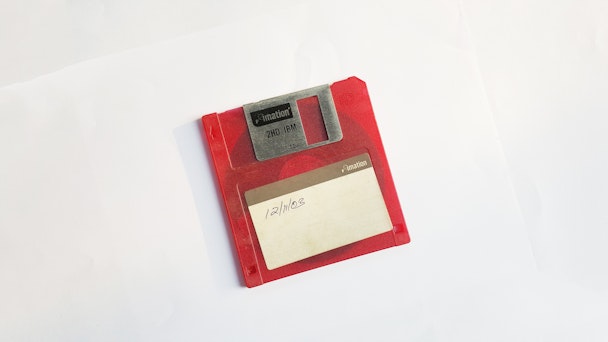Death by digital: How much will history remember gen Z?
For The Drum’s media convergence deep dive, Amplify’s Seun Areoye explores how a digitally obsessed generation might be altering how they’re viewed in the future.

Will this generation's creative output be a fragile memory? / Fredy Jacob via Unsplash
I recently went onto the Dice app to buy a ticket for a show I was excited to attend. Such a godsend that I don’t have to worry about waiting for the physical ticket to arrive; I just need a fully charged battery. Great news. Right? Right? (Insert meme here).
The bridge and the wall
While technological advancements are great for moments like these, they take away the quality of memories (both in our minds and on our devices) we extract from these experiences. That translates beyond a concert hall.
I’m glad to be able to dust off photo albums from my childhood and look at my life growing up, but that archiving process is a dying art. Will that warp how our generation is viewed 50,100, or 150 years down the line when all we’ve got to refer to are blurry, drunken-eyed pictures, and an eternal abyss of images lost to the cloud?
The advancement and democratization of media can be seen in two ways: as a bridge, it’s allowed many to take control of their narrative, given ‘normal’ people full-blown superstar status, and allowed many of us to feel seen in a world that can sometimes get quite lonely.
But as a wall, it turns every experience into a content engine, judged on how well it’ll perform against a hostile algorithm. I have no issue against TikTok, but it seems 9:16 now takes precedence over 16:9, and the increased prominence of the ‘vertical director’, means that ‘short form content’ that makes you do something (buy, subscribe, register) has replaced longer forms of storytelling that were more focused on making the viewer feel something.
Advertisement
Life at the speed of social
The work of legendary photographer Simon Wheatley now serves as a relic, chronicling the growth of one of the UK’s most popular music genres, grime. I recently attended a talk Wheatley hosted at The Photographers’ Gallery, where he talked about intention, process, and time.
This seems at odds with the habits of our generation. We often, largely, reduce analog photography to an aesthetic, something that can be replicated by a filter. Speed takes precedence over process. As a generation, we’re retrofitting everything to become a ‘digital asset’, something we can attach objective and numerical value to (in the form of likes, comments, and saves). Subjecting ourselves to digital overload, the amount of attention we’re willing to give most things seems to be at an all-time low.
Advertisement
As always, brands follow where audiences lead. As the often focused-on audience, it feels as though communications to gen Z assume the nature of a firework over a flame, and the only artifact we’re left with is (if we’re lucky) a wrap video that doesn’t capture the vibe, but matches the beat of the latest hyped track.
I remember, when I was younger, watching Nike’s Joga Bonito videos, and really feeling like I was part of this story, as someone who was playing football on the streets of London. Every time I see that gold and white football, I’m brought back to a time that feels representative of the footballing landscape at the time. The ball serves as a physical reminder of a different time, and the campaign is still often referenced, owned by a generation of hopeful footballers.
But with everything moving toward embracing this digital convergence, I worry we’re losing touchpoints, narratives and most importantly connections with the audiences we’re speaking to.
Fortunately, not all hope is lost.
Suggested newsletters for you
What will we remember?
In a world where the movie Everything Everywhere All At Once was rumored to cause a googly-eye shortage, there’s still room for us to enjoy digital media as a part of our brand experience, and not the dominant theme across every campaign we see.
9:16 short-form videos and out-of-focus pictures from point-and-shoots won’t be all we’re remembered for (don’t get me started on this revival of ‘old school’ digital cameras), but I do wonder what the ‘iconic’ ads that stand the test of time will be.
Nike’s Nothing Beats a Londoner will live long in the memory, but I question how different it’d be had it come out a year or so later as our generation familiarized ourselves with TikTok. Will all of our generation’s memorable ads just be variations of what is certainly my standout ad for the past 5 years, due to a change in focus in what makes a brand campaign successful?
Will the most famous ads of our time be the ones that nobody really paid attention to because they didn’t incorporate a viral sound, or exceeded the 30-second limit that the algorithm apparently suggests you stick to?
Only time will tell.
For more smart thinking on media's big moment, head over to The Drum's media convergence deep dive hub.
Content by The Drum Network member:

Amplify
We solve problems.
At the heart of any problem is a person. A real person. What they think, believe, want or need. We help brands to connect with them and...

